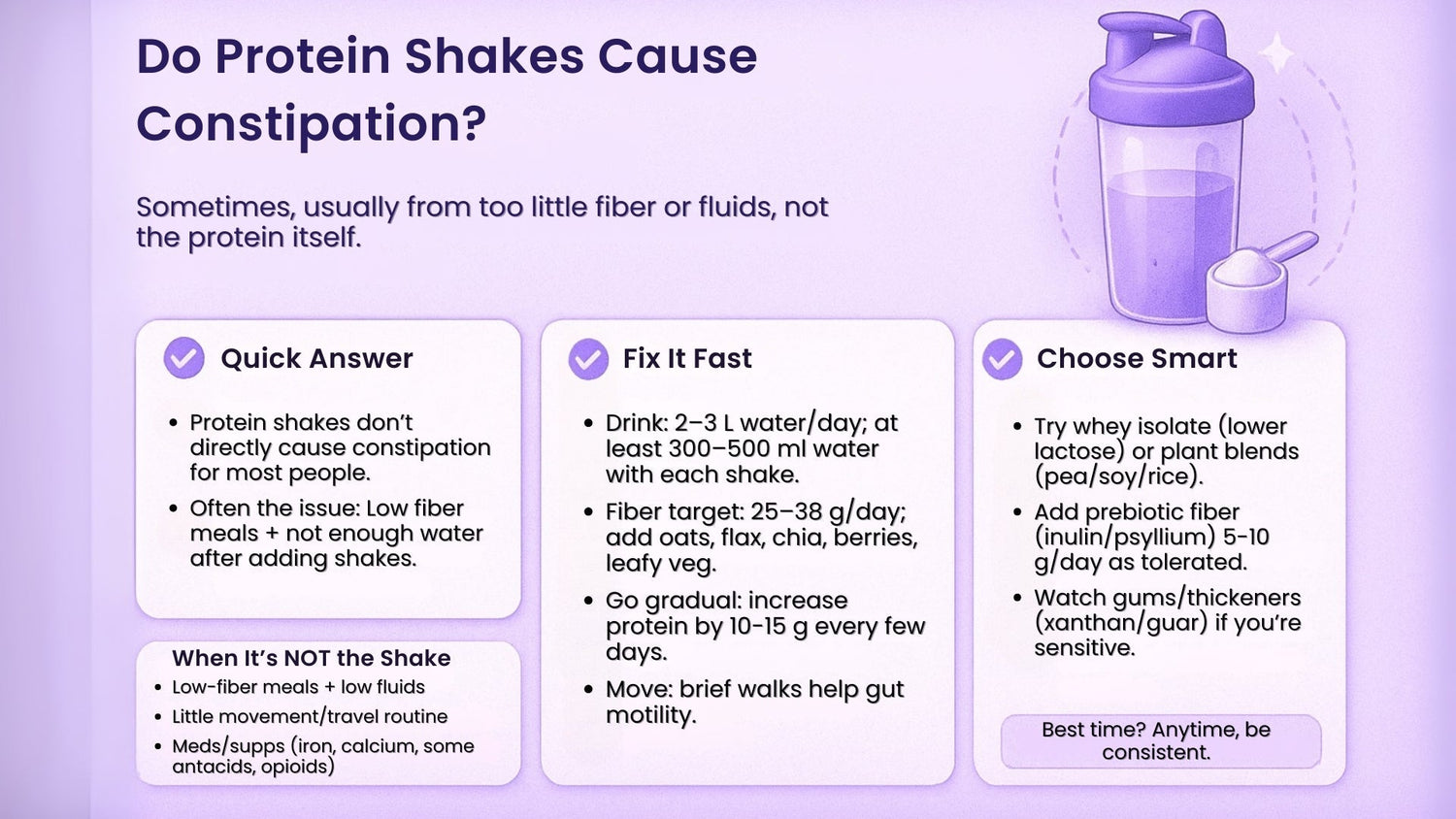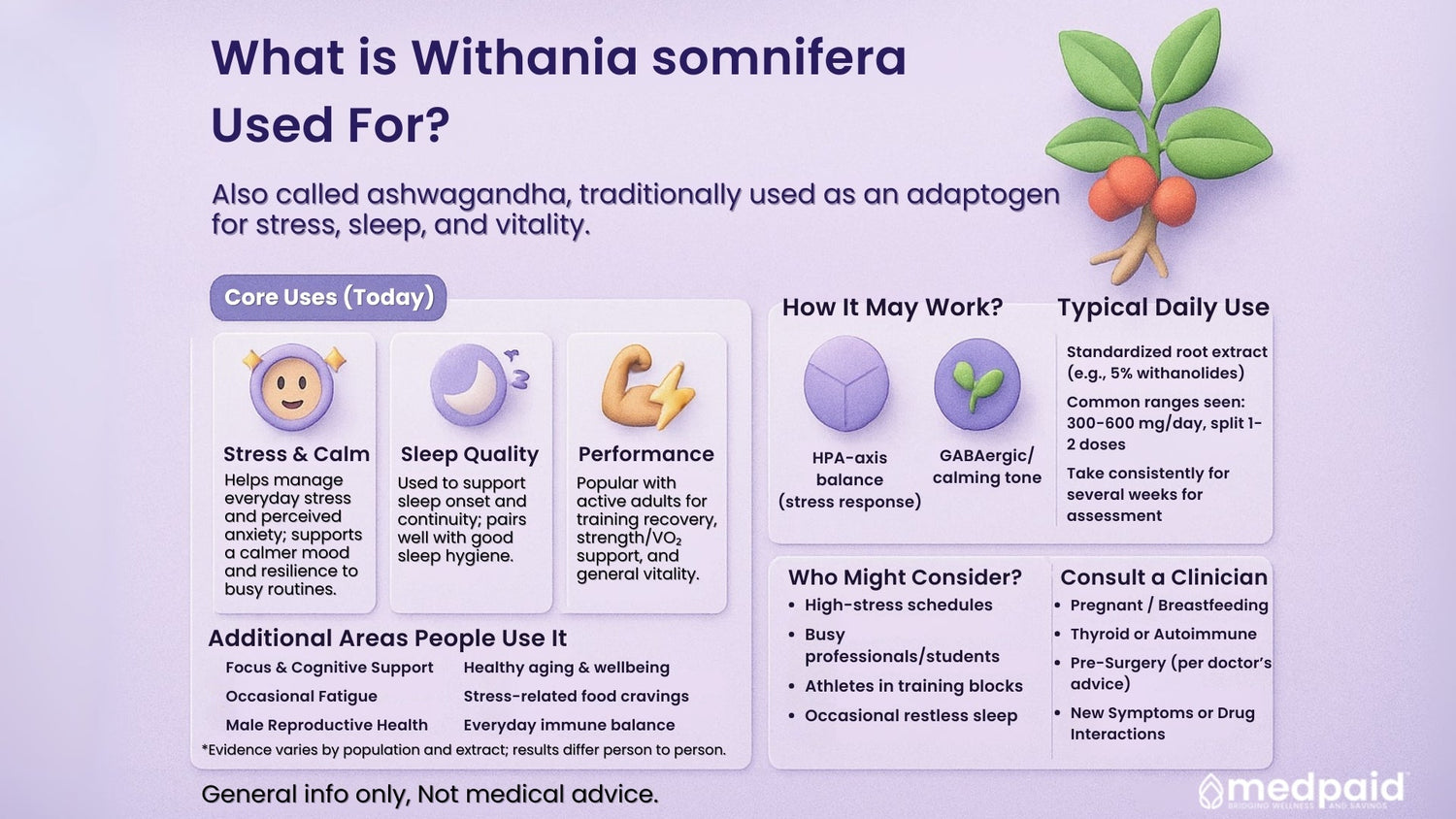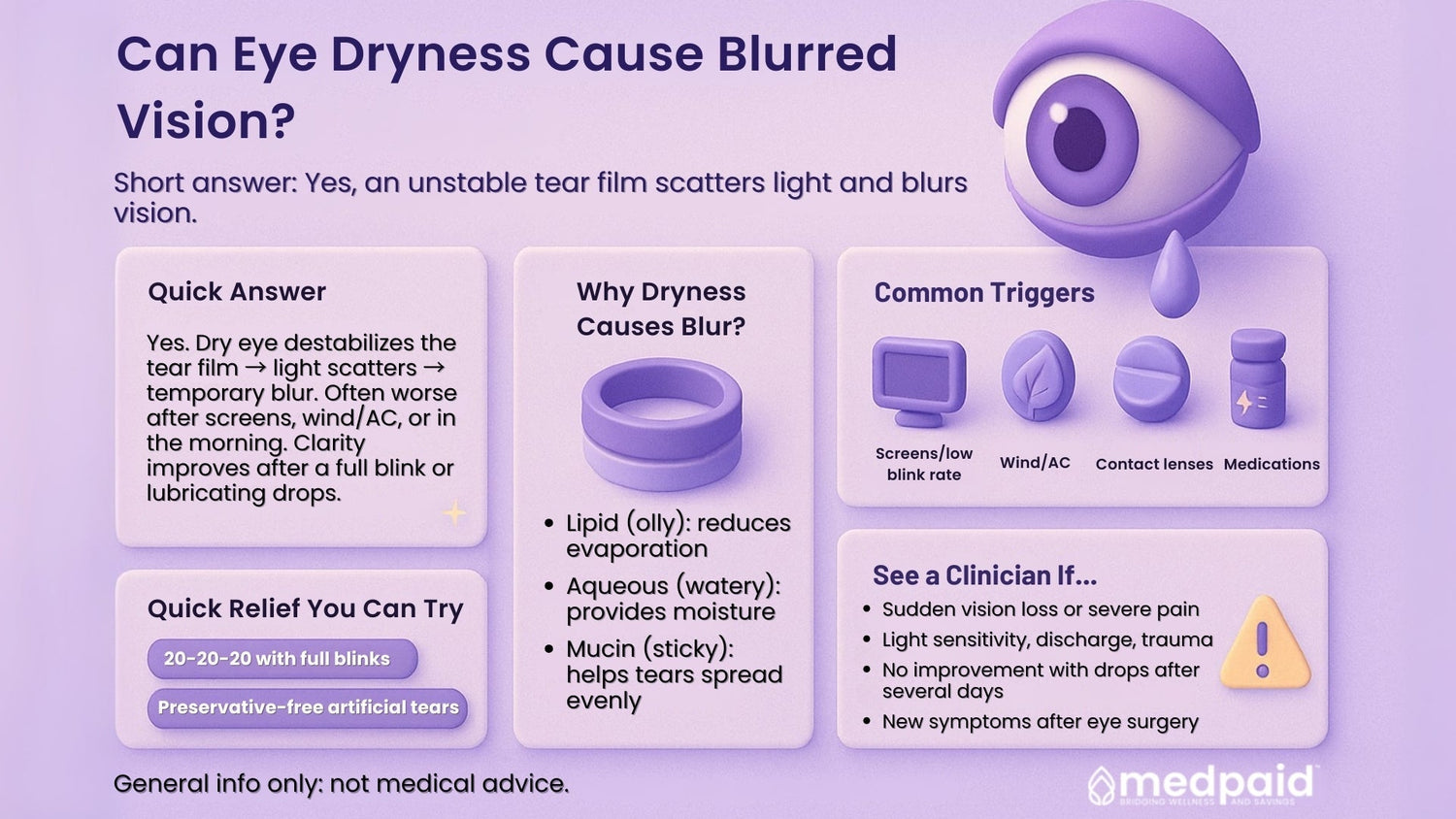Prenatal vitamins are formulated to support the early stages of pregnancy. Compared with regular multivitamins, prenatals typically contain higher amounts of folic acid and iron, iodine and sometimes docosahexaenoic acid (DHA). These nutrients help build the baby’s brain and spinal cord, support the mother’s expanding blood volume and reduce the risk of neural tube defects. Because folate sensitive birth defects occur in the first few weeks of pregnancy, health care providers often recommend starting a prenatal vitamin several months before conception.
If you are not pregnant, do you really need a prenatal vitamin? This article explains who may benefit, who shouldn’t take them and why a balanced diet or targeted supplements are often a better choice. It also answers common questions such as “Can men take prenatal vitamins?” and “Do prenatals help you get pregnant?”
Why Some Non Pregnant People Consider Prenatal Vitamins?
On social media there are claims that prenatals make hair shinier or nails stronger. Others view them as a superior multivitamin or hope they will improve fertility. Some reasons people cite for taking prenatal vitamins when not pregnant include:
-
Covering nutritional gaps. Prenatals provide extra folic acid, iron, DHA and iodine that might be lacking in some diets. Women of childbearing age who could become pregnant benefit from folate because it reduces the risk of neural tube defects.
-
Addressing deficiencies. People with iron deficiency anaemia or malabsorption may use prenatal vitamins to boost iron or other nutrients. However, a standard vitamins & minerals collection may supply the same nutrients without excessive doses.
-
Beauty claims. TikTok influencers often tout prenatal vitamins for thicker hair, better skin or stronger nails. In reality, the lusher hair and nail growth seen during pregnancy is due to increased estrogen, not the vitamins themselves. If you want to support skin or hair health, targeted products such as collagen supplements or apple cider vinegar gummies may be more appropriate.
-
Preparing for pregnancy. Starting a prenatal before conception ensures adequate nutrient stores for the first weeks of fetal development. For people actively planning to conceive, a prenatal may be recommended along with lifestyle changes such as exercise and stress reduction. Medpaid’s gym equipment or saunas & cold plunges collections offer tools to support a healthy lifestyle while preparing for pregnancy.
-
Postpartum or breastfeeding. During breastfeeding, nutrient demands remain high. Experts note that continuing a prenatal during the postpartum period can help meet increased requirements for folate, iron and other nutrients. Always discuss supplementation with your health care provider.
Although these reasons may sound compelling, health professionals caution that there is rarely a need for non pregnant adults to take a prenatal vitamin. In most cases, a varied diet plus a standard multivitamin is adequate.
What Makes Prenatal Vitamins Different?
Prenatal formulas vary by brand because there is no legal definition of “prenatal”. In general, they deliver higher amounts of certain micronutrients than regular multivitamins. The table below compares typical contents:
|
Nutrient |
Why it’s included in prenatals |
Typical prenatal amount (per day) |
Regular multivitamin amount |
|
Folic acid (vitamin B9) |
Reduces neural tube defects in early pregnancy |
400‑800 µg |
~400 µg |
|
Iron |
Supports increased blood volume; prevents maternal anaemia |
~27 mg |
8 mg for men and 18 mg for women |
|
Iodine |
Essential for thyroid hormones and fetal brain development |
150 µg or more |
Often absent |
|
DHA (omega‑3) |
Supports fetal brain and eye development |
Added in some formulations |
Usually, absent |
|
Calcium & Vitamin D |
Build fetal bones; protect maternal bone density |
Included but may not meet full daily needs |
Included |
Because prenatal vitamins supply more folate and iron than adults typically need, regularly taking them without medical indication can lead to excess intake.
Potential Benefits and When They Make Sense?
Women who might conceive. Prenatal vitamins are primarily designed to ensure women of reproductive age have enough folate, iron and other nutrients at the moment of conception. Doctors recommend starting them a few months before pregnancy to lower the risk of neural tube defects and miscarriage. If you are actively trying to conceive, a doctor approved prenatal, together with a healthy diet and exercise, is beneficial. Tools like protein supplements can help meet increased protein needs, while massages chairs or saunas & cold plunges may aid recovery and reduce stress during preconception training.
Nutrient deficiencies. Health care providers may prescribe prenatal vitamins to treat iron deficiency anaemia or folate deficiency. If a blood test shows you are low in iron or folate, supplementing under supervision can help restore levels. However, Medpaid also offers lab work services to identify specific deficiencies and targeted health equipment to support your care.
Postpartum and breastfeeding. After delivery, the mother’s body continues to require extra nutrients. OB GYNs often suggest continuing prenatal vitamins during breastfeeding because folate, DHA and iron remain important. Postnatal or breastfeeding specific supplements are also available, so ask your clinician which formula is right for you.
Risks of Taking Prenatal Vitamins When You’re Not Pregnant
Although most of the vitamins and minerals in prenatals are water soluble and relatively safe, overconsuming certain nutrients can cause problems:
-
Iron overload. Prenatal vitamins deliver ~27 mg of iron, more than triple a man’s daily requirement and almost 50 % more than non pregnant women need. Excess iron can cause constipation, nausea, vomiting and abdominal pain. Severe iron overload may damage organs. Men and post menopausal women should look for appropriate nutritional support instead of prenatals.
-
Folate masking vitamin B 12 deficiency. High folic acid can correct the anaemia of B 12 deficiency without addressing neurological damage, delaying diagnosis.
-
Iodine excess and thyroid issues. Too much iodine from prenatal formulations may cause inflammation of the thyroid gland, a metallic taste, mouth sores or gastrointestinal symptoms.
-
Cancer risk. Some studies suggest that excessive folate might accelerate the progression of existing cancers.
-
Other nutrient imbalances. Prenatals designed for women often contain higher zinc or omit nutrients men need. Too much zinc can interfere with copper absorption.
Because there is no regulated formula for “prenatal,” nutrient levels vary widely. Reading labels and consulting a healthcare professional before taking any supplement is essential.
For general wellness, curated options like Medpaid Preferred products and their best sellers offer doctor vetted choices without unnecessary megadoses.
Can Men Take Prenatal Vitamins?
Men considering prenatals should reconsider. Prenatal supplements are formulated for female physiology and pregnancy needs. Verywell Health notes that male and female nutrient requirements differ; prenatals supply far more iron than men need and may lack nutrients that support sperm health. Overconsumption of iron can cause nausea and constipation, and excess folate may mask B 12 deficiency. Instead of sharing your partner’s vitamins, men trying to conceive can focus on a balanced diet rich in fish, fruits, vegetables, whole grains and healthy fats. Supplements containing zinc, selenium, omega 3s or coenzyme Q10 may help sperm quality, but evidence is mixed. If you need extra support, explore the men’s health section of the marketplace or discuss male specific fertility supplements with a healthcare provider.
Do Prenatal Vitamins Help You Get Pregnant?
A common misconception is that taking prenatal vitamins will boost fertility or increase the chance of conceiving. In reality, there is no evidence that prenatals make you more fertile. Natalist, a reproductive health company, explains that prenatals do not increase the likelihood of pregnancy. Their role is to reduce the risk of birth defects and support a healthy pregnancy once conception occurs.
If you are trying to conceive, focus on overall health rather than relying on vitamins as a magic solution. Research shows that factors you can control such as eating a balanced diet, exercising regularly, maintaining a healthy weight, avoiding tobacco and limiting caffeine and alcohol, can improve fertility. Medpaid’s gym & personal training equipment, protein supplements and massage chairs can support an active lifestyle. Tools like ovulation tests (featured on their blog) and consulting a fertility specialist may also help.
Alternatives to Prenatal Vitamins
For non pregnant adults looking to improve health, consider these approaches instead of prenatals:
-
Balanced diet. Whole foods vegetables, fruits, whole grains, lean proteins and healthy fats provide vitamins and minerals in safe amounts. Eating real foods is better for hair, skin and gut health than megadoses of supplements. If you struggle to meet nutrient needs, a standard multivitamin or targeted supplements may suffice.
-
Targeted supplements. Hair and nail concerns may benefit from biotin or collagen. Explore Medpaid’s collagen collection or Goli Superfruits & Supergreens gummies for antioxidant support. Those with muscle recovery goals might consider creatine gummies or check whether such products are effective before purchasing.
-
Professional guidance. If you suspect a deficiency, get lab work to identify specific issues. A healthcare provider or dietitian can then recommend the right supplement and dosage, preventing unnecessary risk.
-
Optimising HSA/FSA benefits. Some supplements, fitness equipment and wellness services may be eligible for reimbursement through health savings accounts (HSA/FSA). Medpaid’s blog explains how to use your HSA to buy supplements and which vitamins qualify. Understanding these rules ensures you spend health funds wisely.
When Should You Take Prenatal Vitamins?
Health authorities agree that prenatal vitamins are most appropriate in specific situations:
- Preconception and early pregnancy. If you plan to become pregnant within a few months, begin a prenatal supplement containing at least 400 µg of folic acid. Talk with your clinician to select a product that meets guidelines and does not exceed safe upper limits.
- During pregnancy. Prenatals supply the iron, iodine and other nutrients needed to support rapid fetal growth. Continue them throughout pregnancy unless advised otherwise. Medpaid’s lab work services can help monitor nutrient status.
- Postpartum and breastfeeding. Nutrient demands remain elevated while breast‑feeding. Continuing a prenatal vitamin can benefit both mother and baby. Some women switch to a postnatal vitamin tailored for lactation. You can also explore doctor‑vetted health equipment to support recovery.
- Medically diagnosed deficiencies. When blood tests show low levels of folate, iron or other nutrients, doctors may prescribe a prenatal vitamin for a period of time. Do not self‑diagnose; excessive supplementation can be harmful.
Prenatal vitamins play a crucial role in preventing birth defects and supporting pregnancy, but they are not meant for everyone. Taking them when you aren’t pregnant, planning to conceive or breastfeeding offers little benefit and may lead to nutrient imbalances. Men should avoid prenatals formulated for women, and individuals seeking better hair, nails or skin can find more appropriate products in curated collections such as Medpaid Preferred, massage chairs for stress relief or targeted nutritional support.
Fertility is influenced more by lifestyle, diet and overall health than by a single supplement. Focus on eating well, staying active and managing stress. When in doubt, consult your healthcare provider, get appropriate lab work, and choose supplements tailored to your specific needs. A thoughtful approach will serve you better than relying on prenatal vitamins outside of their intended purpose.






